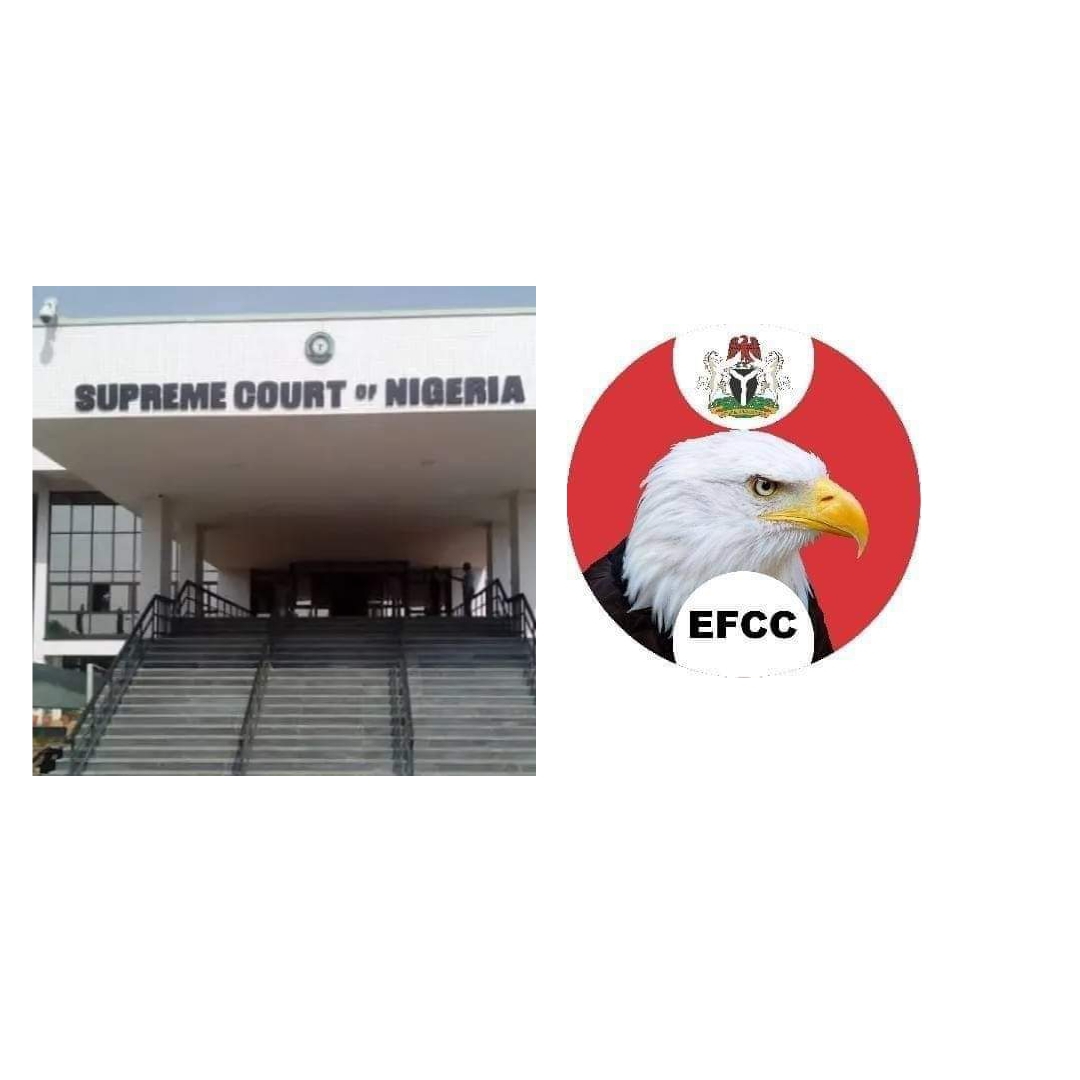EDITORIAL: Nigeria Governors vs EFCC – A Perfect Test For The Supreme Court
On October 22, the Supreme Court reserved judgment on a significant lawsuit filed by nineteen states challenging the constitutionality of laws establishing the Economic and Financial Crimes Commission (EFCC) and two other federal agencies. The states involved include Kogi, Kebbi, Katsina, Sokoto, Jigawa, Enugu, Oyo, Benue, Plateau, Cross River, Ondo, Niger, Edo, Bauchi, Imo, Osun, Nasarawa, Ogun, and Taraba. These governors are questioning the legality of the EFCC, the Nigerian Financial Intelligence Unit (NFIU), the Independent Corrupt Practices and Other Related Offences Commission (ICPC), and the Proceeds of Crimes Act, arguing they may overreach federal power.
To be specific, Ogun and Cross River are challenging the NFIU’s authority to control state fund withdrawals or influence spending appropriated by state legislatures. Originally filed by the Attorney General of Kogi State under case SC/CV/178/2023, this lawsuit now includes fifteen other states. The plaintiffs refer to a previous Supreme Court decision in Dr. Joseph Nwobike vs. the Federal Republic of Nigeria, where it was determined that the EFCC Establishment Act originated from a United Nations anti-corruption convention. They argue this Act, enacted in 2004, did not comply with Section 12 of the 1999 Constitution, which requires legislative ratification of international treaties before they become enforceable laws in Nigeria.
After hearing arguments from both sides, Justice Uwani Abba-Aji reserved judgment, with a date to be announced.
The governors claim that the EFCC Act, being a derivative of a U.N. convention, is unconstitutional since it was not ratified by all state legislatures, as required by Section 12 of the Constitution. They argue the EFCC lacks the authority to investigate or prosecute public fund misappropriation cases involving states. Additionally, they assert the power to establish their own anti-corruption agencies, maintaining that this responsibility should remain at the state level.
The Attorney General, on behalf of the federal government, counters that state approval was unnecessary for the validity of the EFCC Act. Several states argue that the NFIU, too, lacks jurisdiction over state finances and that federal oversight encroaches on their autonomy.
Since its inception, the EFCC has faced criticism, particularly beyond its initial years under Mallam Nuhu Ribadu, for allegedly serving as a political weapon. Critics argue that flaws in its establishment have allowed corruption to persist. The governors’ stance is bolstered by Senior Advocates of Nigeria Femi Falana and Olisa Agbakoba, who advocate for constitutional amendments to clarify and solidify the EFCC’s role.
Falana and Agbakoba emphasize the need to address ambiguities within anti-corruption laws through constitutional and legislative amendments. They also recommend that EFCC officials declare their assets, urging transparency within the agency to strengthen its credibility in the fight against corruption. Additionally, they suggest the EFCC avoid practices like media trials and refrain from acting as debt recovery agents. Rather, the agency should concentrate on combating financial crimes through legitimate means and avoid becoming a tool for political conflicts.
As the case awaits the Supreme Court’s decision, Nigerians are hopeful that the judiciary will act independently and with integrity. The confidence in the Court is further reinforced by the recent inaugural speech of Chief Justice Hon. Justice Kudirat Kekere-Ekun, who reaffirmed her commitment to judicial independence, transparency, and integrity. Justice Kekere-Ekun emphasized that the judiciary, while maintaining necessary cooperation with other government branches, must remain impartial and uphold its autonomy.
This case represents a crucial test for the Supreme Court, one that will not only clarify the constitutionality of federal anti-corruption laws but also reinforce or redefine the balance of power between federal and state governments in Nigeria.

